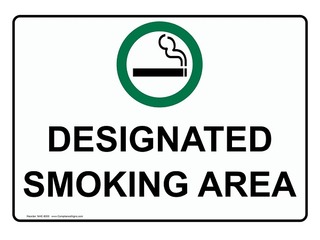As cannabis goes mainstream, Cannalysis looks to standardize the testing process
The company raised a $22M funding round from CanLab last week
Read more...Note: The CannaVator accelerator, which includes a 10-week online and in-person program, is accepting applications until August 15, 2016 for its Fall 2016 cohort. More details about the program and how to apply here.
Though cannabis remains illegal as far as the U.S. federal government is concerned, laws regulating the drug on state and municipal levels have been rapidly evolving over the past several years.
Dozens of states have legalized cannabis for limited (typically medicinal) use cases. A few have decriminalized it. And four states (Colorado, Washington, Oregon, and Alaska) have legalized it for recreational use. All told, 39 states have legalized cannabis in some form, according to a recent report by Ackrell Capital.
Even the federal government has taken a somewhat less restrictive approach. Though committed to enforcing the Controlled Substances Act (CSA, which makes marijuana illegal in the U.S.), the Department of Justice in August 2013 issued the oft-cited "Cole Memo," effectively admitting that it wouldn't intervene with state rules except in specific cases, for example the selling of drugs to minors, the funneling of revenue to gangs and cartels, or in cases where substances cross into border states with stricter rules.
Given all the complexity in U.S. law governing cannabis, things can be a bit confusing for your average smoker, not to mention for entrepreneurs hoping to capitalize on the emerging cannabis market.
The purpose of this series is to help demystify the legality of starting and growing a cannabis startup in various U.S. states. My last segment in this series focused on Colorado. This segment is on Washington.

The law: In November 2012, Washington (along with Colorado) became the first/second state in the country to legalize the sale and possesion of marijuana for non-medical uses. Recreational marijuana is regulated by the Washington State Liquor and Cannabis Board (WSLCB).
Buying: As with alcohol, you must be at least 21 years old to purchase marijuana in Washington. You can only buy from licensed retail stores, and you may possess and use up to:
These limits apply to both recreational and medicinal marijuana. The state has less strict limits for qualified patients who have joined the Medical Marijuana Authorization Database and have received a medical marijuana recognition card. These patients may purchase (sales tax free):
While growing marijuana for recreational use is prohibited, qualified patients may:
Using: In Washington (as in Colorado), it is illegal to use marijuana in public or in view of the general public, including federal lands. That also includes the retail stores that sell cannabis products. Essentially, you can use it on private property as long as no one else can see or smell it.
Business licenses: In Washington (as in Colorado), only licensed retailers can sell marijuana products. The state offers several different kinds of business licenses. One business can't have all three licenses, and a retailer cannot acquire any other kind of license. The only licenses that can be matched together are for producers and processors.
Each license costs $266 for the application fee and $1,062 for the annual renewal fee. Additionally, the WSLCB applies a 37 percent tax on all taxable sales of marijuana, marijuana concentrates, useable marijuana, and marijuana-infused products. During its first fiscal year, the marijuana industry netted Washington over $64 million in tax revenue—a figure the state expects will grow.
As of June 8, 2016, there are 1,361 licensed marijuana businesses in Washington (approximately half as many as are in Colorado):
The first map below shows retail (green) and medically endorsed (blue) retail locations across the state, while the second map shows producers and processors:


Examples of cannabis companies in Washington
While most of the companies in Washington's cannabis economy fit into the above categories as producers, processors, and retailers, there are several other companies taking the approach of serving the growing cannabis industry.
Here are a few examples of Washington-based cannabis companies :

—————

—————

—————

The company raised a $22M funding round from CanLab last week
Read more...Only Arizona voted no, while North Dakota, Florida, Arkansas and Montana expanded medicinal use
Read more...The company will use the funding to expand to new markets in California
Read more...Startup/Business
Joined Vator on
IUNU (pronounced “you-new”) is changing the way we grow food. We solve the core problems preventing indoor agriculture from being economical and environmentally sustainable. Our innovative products enable communities to efficiently transition to and master indoor horticulture year round. Compared to current commercial lighting systems, our proprietary Dual Plasma fixture produces 50% less heat, consumes 50% less energy, reduces water consumption, and grows superior produce.
Our world is experiencing record-breaking droughts, herbicide and pesticide pollution, and rapidly rising energy costs. Join us to help create communities with local access to the freshest and best tasting fruits, vegetables, and herbs provided by space efficient urban gardens.

Joined Vator on
CEO at IUNU. Enjoys mitigating risks while helping companies grow. With early stage companies, cash is king, focus is queen. Finance background from Amazon and securities trading. University of Washington Foster School of Business.




